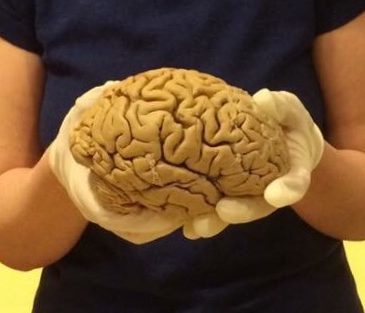I didn’t know gender when I was 5. I knew that I was a girl, but I did not know that being a girl meant that I should fit into a neat little box that is supposedly totally different from the neat little box my brothers were supposed to fit in. I was heart-broken when my brother, who was 6 at the time, told me that I shouldn’t spit like boys do or I wouldn’t have any friends when I started school.
I continued to struggle with gender identification throughout my childhood. When I was 7, I chopped off all my hair. Funny enough, it wasn’t some outcry against our binary gender system or an attempt to tell the world that I identified as a boy. I never felt like I was born in the wrong body or anything, I just didn’t understand that boys and girls were supposed to be different from each other. So when I cut my hair, it wasn’t out of defiance or self identification, it was simply because my dad had made an off-hand comment about switching up my hairstyle. Thinking back, the comment he made was probably intended to either get my mom to change her hairstyle or more likely to stop spending money on haircuts when we never got new hairstyles. However it went down, I asked the hairstylist to change up my hair, and she decided to give me a “Princess Diana” haircut. I had no clue who Princess Diana was or if I wanted to look like her, but I thought my new haircut would impress my dad. So I said ok to the chop.
I think my dad admired my bravery in chopping my hair. I thought it was pretty cool, too, until the kids on the playground started asking me if I was a boy or a girl and then laughing at me. I definitely learned the importance of fitting into your gender category and having others recognize your gender. My little 7 year old feelings were hurt, and I knew I had to grow my hair out again. Thinking about it now, though, that year when my hair was the shortest was the best year of my childhood. I actually ended up being one of the more popular kids at a new school I was attending. I had a lot of good friends, but those few comments on the playground have always stuck with me.
I grew my hair back out. I learned what it meant to be “a girl.” During middle school, I worried when I didn’t start having crushes on the boys like everyone seemed to expect that I should. I wasn’t worried about being a lesbian because I didn’t even know what that was back then, but I was worried that I just wasn’t normal. That I didn’t fit. So I picked the male friends that I liked the best and decided that they must be my “crushes” and proceeded to send my favorite male friend the obligatory note asking him to check yes or no. He didn’t respond at all, and avoided me for the rest of the year. After that, I decided I would much rather be friends with the boys than try to be their girlfriend. But the pressure to have a boyfriend or at least be interested in having one dragged on.
Lucky enough for me, my first crush finally came along and “normalized” my teenage experience. It was the quintessential “girl falls for bad boy” routine. I was in love.
I questioned my sexuality a few times, but ultimately came to the conclusion that sexuality falls on a spectrum much like gender does. We can use the terms feminine and masculine and female and male since they are familiar to us, but I do wish that we had more choices of terms or maybe an elimination of terms. People do not fit into neat little boxes, and you can’t presume to know me or judge me based on my ascribed category. I am somewhere in the middle of the feminine-masculine continuum. And I tend to like (and love) others who are somewhere in the middle as well. So can we do away with the little boxes that are devoid of any real meaning?



Leave a comment